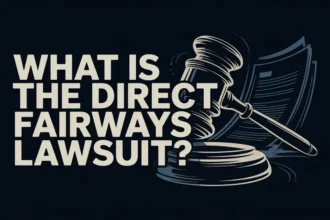Law firms face intense competition in local markets, where potential clients typically search for legal services within their geographic area. SEO strategies specifically designed for law firms can significantly improve search rankings and help practices capture more qualified leads from their local market. The digital landscape has fundamentally changed how people find legal representation, making online visibility crucial for business growth.
Local search optimization involves multiple components that work together to establish authority and relevance in specific geographic markets. Law firms must understand how search engines evaluate local businesses and what factors influence ranking positions. These elements include technical website optimization, content strategy, and local business signals that demonstrate credibility to both search engines and potential clients.
The competitive advantage gained through effective SEO extends beyond simple rankings. Firms that implement comprehensive optimization strategies often see improvements in lead quality, client acquisition costs, and overall market share within their practice areas.
Key Law Firm SEO Strategies to Outrank Local Competitors
Law firms can dominate local search results by optimizing their Google Business Profile, managing citations across legal directories, conducting targeted keyword research, and leveraging client reviews to build authority. These strategies work together to improve visibility in local pack results and attract more qualified leads.
Optimizing Google Business Profile for Local Visibility
A fully optimized Google Business Profile serves as the foundation for local SEO success. Law firms must claim and verify their profile to appear in Google Maps and local pack results.
Essential optimization elements include:
- Complete business information with accurate NAP (Name, Address, Phone)
- Detailed practice area descriptions
- Regular posting of updates and legal insights
- High-quality photos of the office and team
The profile should specify exact practice areas like personal injury law, family law, or criminal defense. This helps Google understand when to show the firm for relevant searches.
Firms should add service pages for specific practice areas. A personal injury lawyer might create separate sections for car accidents, slip and fall cases, and medical malpractice.
Regular posts about legal topics and firm updates signal activity to Google. These posts should include relevant keywords and location-specific information.
Effective Legal Directory and Citation Management
Local citations from legal directories build credibility and improve search rankings. Consistent NAP information across all directories strengthens local SEO signals.
Key legal directories include:
- Avvo
- FindLaw
- Justia
- Martindale-Hubbell
- Super Lawyers
- Nolo
Each directory profile should contain complete practice area information. A divorce attorney should list family law services, while a DUI lawyer should emphasize criminal defense specialties.
Business directories beyond legal-specific sites also matter. Yelp, Better Business Bureau, and local chamber of commerce listings contribute to citation strength.
Firms must monitor these listings for accuracy. Outdated phone numbers or addresses can harm local search performance and confuse potential clients.
Targeted Keyword Research and Content Optimization
Local keyword research identifies terms potential clients use when searching for legal services. Law firms should target location-specific keywords combined with practice areas.
Effective keyword patterns include:
- “divorce lawyer [city name]”
- “personal injury attorney near me”
- “criminal defense lawyer [city/state]”
- “estate planning attorney [location]”
Service pages should target specific practice areas. A family law firm might create separate pages for divorce, child custody, and adoption services.
Content should address local legal issues and regulations. A criminal defense attorney might write about state-specific DUI laws or local court procedures.
Each service page needs unique, valuable content that demonstrates expertise. Generic content copied across multiple pages hurts SEO performance.
Leveraging Client Reviews and Reputation for Authority
Client reviews directly impact local search rankings and influence potential clients’ decisions. Law firms need systematic review generation and management strategies.
Review platforms that matter most:
- Google Business Profile
- Avvo
- Yelp
- Legal-specific directories
Firms should request reviews from satisfied clients through email follow-ups or automated systems. The request should include direct links to preferred review platforms.
Responding to all reviews demonstrates engagement and professionalism. Positive responses should thank clients while negative responses should address concerns professionally.
Review content should mention specific practice areas when possible. A personal injury lawyer benefits from reviews that mention car accident cases or settlement outcomes.
Regular monitoring helps identify and address negative reviews quickly. Quick responses can often resolve issues before they impact the firm’s reputation.
Advanced SEO Techniques to Maintain a Competitive Edge
Successful law firms implement sophisticated SEO strategies that go beyond basic optimization to build lasting digital authority. These techniques focus on earning quality backlinks, optimizing technical performance, leveraging structured data, and maintaining continuous improvement through data analysis.
Building High-Quality Backlinks and Authority Signals
Quality backlinks serve as trust signals that demonstrate a law firm’s credibility to search engines. Legal directories, bar associations, and industry publications provide valuable link-building opportunities.
Guest posting on established legal blogs generates authoritative backlinks while showcasing expertise. Firms should target publications that cover their practice areas and maintain high editorial standards.
Creating valuable resources like legal guides and case studies naturally attracts links from other websites. These assets demonstrate thought leadership and provide content worth referencing.
Building relationships with local business organizations and community groups creates opportunities for natural link acquisition. Chamber of commerce memberships and sponsorships often include website links.
Law firms should monitor their backlink profile using tools like Ahrefs or SEMrush to identify toxic links that could harm rankings. Regular audits ensure link quality remains high.
Press releases about significant case victories or firm milestones can generate media coverage and backlinks from news outlets. This strategy builds both authority and local visibility.
Maximizing Website Performance and User Experience
Website performance directly impacts search rankings and user satisfaction. Page loading speed affects both search engine crawling and visitor retention rates.
Technical optimization includes compressing images, minifying CSS and JavaScript files, and implementing caching solutions. These improvements reduce loading times across all devices.
Mobile responsiveness ensures proper functionality on smartphones and tablets. Search engines prioritize mobile-friendly websites in their ranking algorithms.
Navigation structure should allow users to find information within three clicks. Clear menu organization and internal linking help both users and search engines understand site hierarchy.
Contact forms and phone numbers must be easily accessible from every page. Potential clients should never struggle to find ways to reach the firm.
Regular performance monitoring identifies issues before they impact rankings. Tools like Google PageSpeed Insights provide actionable recommendations for improvement.
Implementing Structured Data and Localized Content
Schema markup helps search engines understand website content and display enhanced search results. Legal firms benefit from organization, review, and FAQ schema implementations.
Location-specific content targets potential clients in specific geographic areas. This approach works particularly well for firms serving multiple cities or regions.
Local keywords should be integrated naturally into practice area pages and service descriptions. Terms like “divorce lawyer Miami” capture high-intent local searches.
Long-tail keywords often have less competition and higher conversion rates. Phrases like “child custody modification attorney” target specific legal needs.
Title tags and meta descriptions should include relevant local keywords while remaining compelling to users. These elements influence both rankings and click-through rates.
Creating separate pages for each office location provides opportunities to target location-specific search terms. Each page should include unique content about local services and community involvement.
Tracking and Refining Your SEO Strategy Over Time
Keyword research tools like SEMrush and Ahrefs provide data on search volume, competition, and ranking opportunities. Regular analysis reveals new targeting opportunities.
Search intent analysis ensures content matches what users actually seek. Informational queries require different content approaches than transactional searches.
Monitoring competitor strategies reveals gaps and opportunities in the market. Understanding what works for similar firms helps refine positioning strategies.
Google Local Services Ads performance data provides insights into which practice areas generate the most leads. This information guides organic SEO prioritization.
Setting up proper analytics tracking measures the impact of SEO efforts on lead generation and client acquisition. Revenue attribution helps justify continued investment.
Regular strategy reviews allow firms to adapt to algorithm changes and market shifts. SEO for law firms requires ongoing attention to maintain competitive advantages.

















